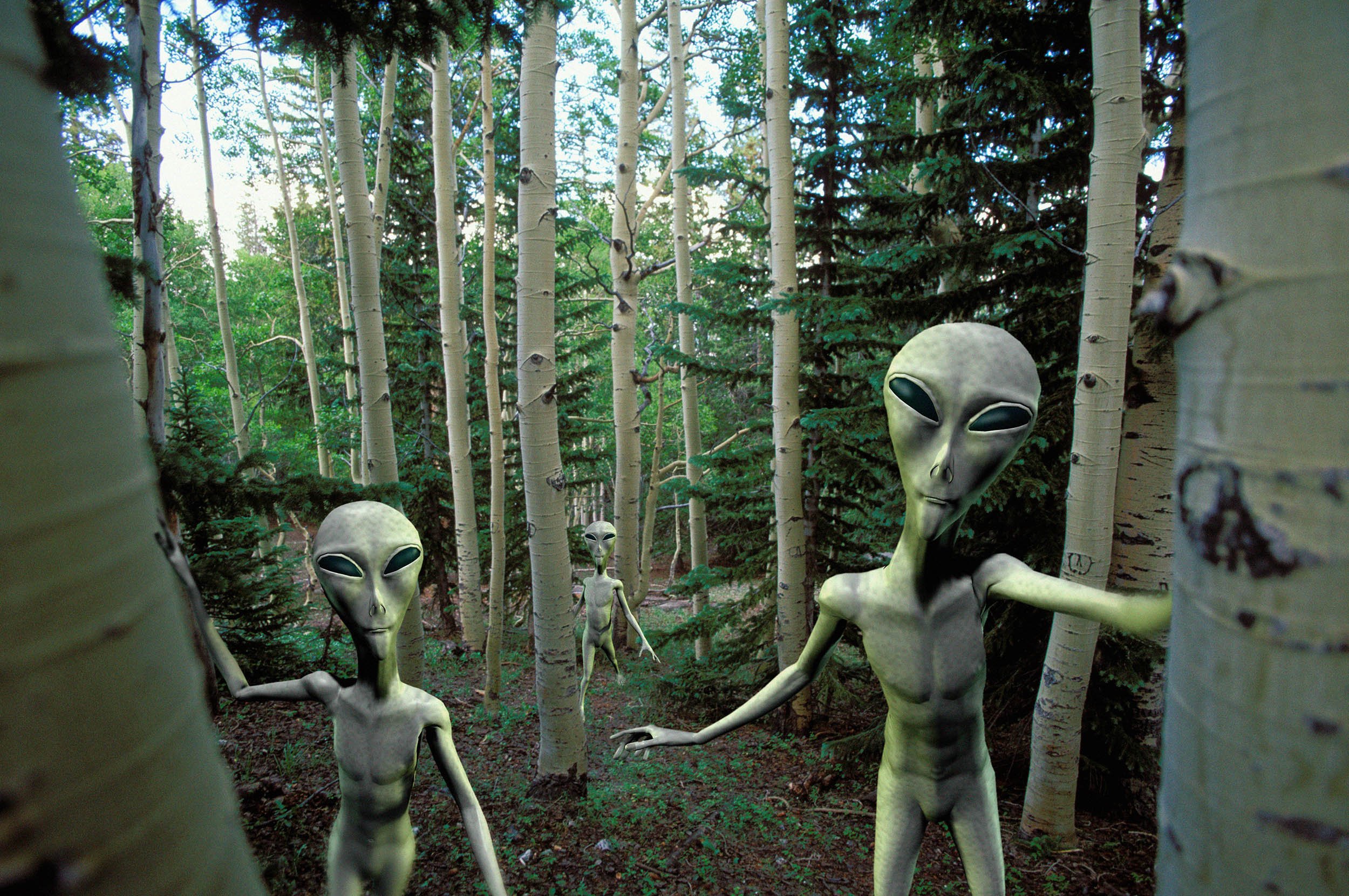
Aliens, if they exist, are likely huge. At least that's the conclusion of a new paper by cosmologist Fergus Simpson, who has estimated that the average weight of intelligent extraterrestrials would be 650 pounds (300 kilograms) or more. ET would have paled in comparison to these interstellar behemoths.
The argument relies on a mathematical model that assumes organisms on other planets obey the same laws of conservation of energy that we see here on Earth—namely, that larger animals need more resources and expend more energy, and thus are less abundant. There are many small ants, for example, but far fewer whales or elephants.
Thus, throughout the universe, as is the case on Earth, there are likely more small animals than large ones, says Simpson, a scientist at the University of Barcelona. Since the number of planets inhabited by relatively small animals would outnumber the amount of worlds where large ones predominate, it is most likely that we find ourselves on a planet with relatively small animals—and are ourselves probably one of the smaller intelligent beings, he adds.
Simpson says that a certain minimum size is probably necessary for intelligent life, and he used the range of body sizes found in animals on Earth to come up with the most probable distribution of organisms on other planets.
"I think the average size calculation is reasonable," says Duncan Forgan, a scientist at the University of St Andrews school of physics and astronomy who wasn't involved in the paper, which is published at arXiv.org.
There are many factors that the calculation doesn't take into account, however, Forgan says, in part because it may simply not be feasible to do so. Simpson's paper "doesn't address the correlation between body mass and the planet's surface gravity," for example, Forgan says. Planets with a more powerful gravitational pull might be expected to have smaller animals; on a tiny planet with weak gravity, you might expect the opposite. On the whole, though, taking this into account "might push the mean size down a bit, but it's hard to say without doing a much harder calculation," Forgan says.
Seth Shostak, a researcher at the SETI Institute, says the paper reminded him of previous work he had done suggesting that any extraterrestrials we might eventually find would be on the larger side since bigger animals live longer, and an organism with a longer lifespan might be more likely to develop the kind of technology necessary for making contact with humans.
However, that work, just like Simpson's paper, is all speculation. Fun and fascinating stuff, but still speculation. "It's interesting, but there's really no concrete data to work with," he says. We only have our planet and its inhabitants to serve as a model for what life looks like. This paper, like others, assumes that Earth is a "typical" or average planet, and uses information from here to make assumptions about the unknown. But it's impossible to know if that's appropriate to do, from a scientific point of view.
The paper also didn't take into account any kind of evolutionary theories, Shostak says (which, to be fair, might not even be feasible in this kind of a calculation). While larger animals do in general tend to be more intelligent than tiny ones, it's all relative—we are, of course, not the planet's biggest organism. And it's really our opposable thumbs and upright stance—not our body mass—that has allowed our intelligence to blossom, Shostak says.
"Polar bears are large but do not write great literature and build radio towers," Shostak says with a laugh, "and a lot of that is probably because they are walking around on all fours."
Uncommon Knowledge
Newsweek is committed to challenging conventional wisdom and finding connections in the search for common ground.
Newsweek is committed to challenging conventional wisdom and finding connections in the search for common ground.
About the writer
Douglas Main is a journalist who lives in New York City and whose writing has appeared in the New York ... Read more
To read how Newsweek uses AI as a newsroom tool, Click here.








